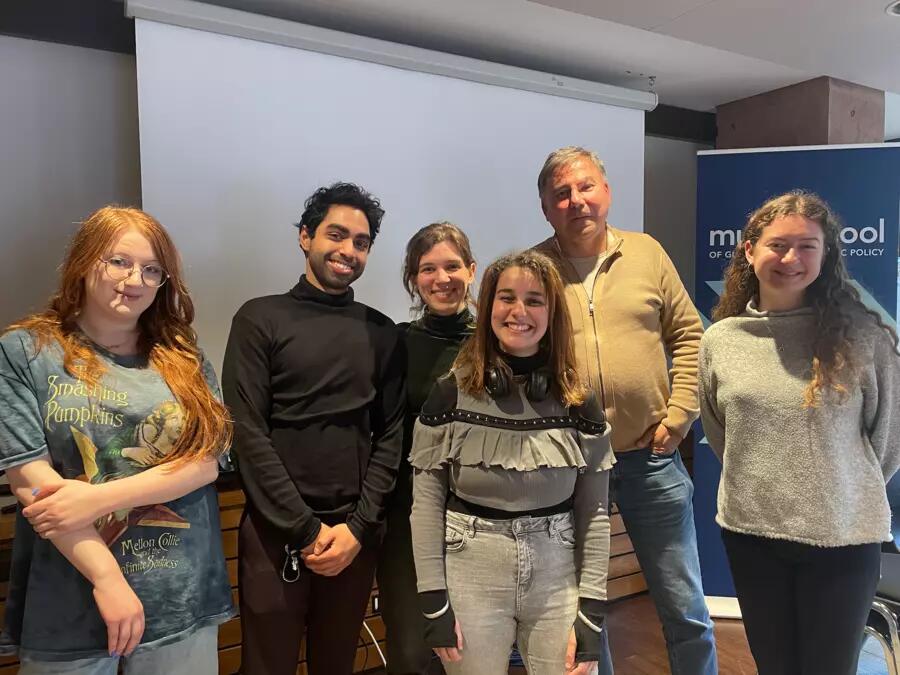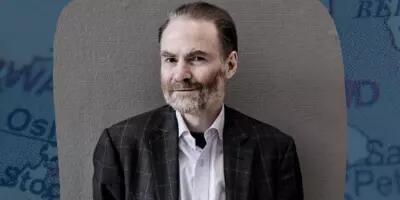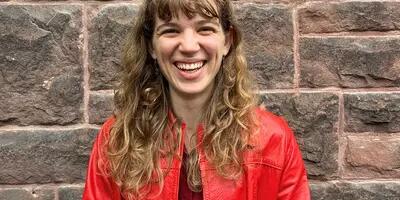
In Conversation with Ivan Krastev
On October 28th, CERES invited Ivan Krastev for an exclusive conversation with CERES MA students. Krastev is a political scientist and Chairman of the Centre for Liberal Strategies in Sofia, Bulgaria, as well as a permanent fellow at the Institute for Human Sciences located in Vienna, Austria.
Krastev started his conversation by discussing his own personal life —the hope he held as a young person in Bulgaria during the fall of communism—which had been “stable as nature.” Later, Krastev studied philosophy at Oxford University but when deciding his next steps, he felt that since history was being made in his own country, he returned to Bulgaria where he funded The Centre for Liberal Strategies in 1994. Since then, the non-governmental organization has flourished.
Krastev continued by emphasizing an understudied field by and large but especially in Central and Eastern Europe: demographic change. With an ageing population, major emigration waves, and now the movement of war refugees through Europe, Krastev is sure that changing demographics will have a major impact on the politics of the region in the coming years.
I sat down with Krastev following his conversation with CERES students. Below is our discussion:
How does your educational background in philosophy shape your work and perspectives as a political scientist?
When you come from philosophy, you are interested in how and why things and questions are framed. You are never going to be happy simply knowing empirical data — you are always going to try to understand why people are doing what they are doing. Philosophy gives you much more stimulating, comparative frames because in every situation you believe there is both something very specific and something very universal.
What do you believe is the European Union’s role in ensuring lasting democracy in light of Russia’s current war in Ukraine?
What is happening now is a critical crisis of identity for the European Union because several of the major assumptions on which it was built are being questioned by this war.
The European Union was perceived predominantly as a peace project, birthed from the ashes of the Second World War and a continent on which no one believed a major war was possible. What we see now in Russia’s war against Ukraine is a major war, with a level of hostility akin to WWII.
Another assumption was that economic interdependency was enough to secure the European continent. The Germans were sure that if they built enough pipelines with Russia and bought enough Russian gas, Russia was never going to attack. What was before perceived as a source of security, is now perceived as a source of vulnerability. Additionally, Europe has very much outsourced its security to the United States, but now the connection with the United States is dwindling because the conflict with China bears a lot of weight on American foreign policy.
Europe was also perceived as a post-national project where nationalism, as seen in the days of the Yugoslav wars, was seen as dangerous. Today, we see a fascination with the power of Ukrainian nationalism and its ability to mobilize people. The reassessment of the power that nationalism has is a challenge to the European project, if we believe that nationalism was something of the past. All these are important issues and from this point of view, this war is going to remake Europe profoundly.
How would you evaluate the effectiveness of the Temporary Protection Directive and the transition to long-term support of refugees in Europe?
The most interesting thing about the refugee question is that the Ukrainian crisis basically flipped the discussions of the 2015/2016 crisis on its head. When you look back to the 2015/2016 crisis, you are going to see that the Visegrád countries have been extremely critical towards opening the borders, a common European policy when it comes to refugees. Yet some of these countries have openly refused to accept refugees. Then comes the Ukrainian refugee crisis and you end up with countries like Poland and the Czech Republic where there is an incredibly high number of refugees.
You could have two interpretations of what happened — some will say this is a scandal because countries only allow in the people they identify with, that behind this policy there is racial prejudice because they were closing themselves for Syrian refugees but opening themselves for Ukrainian refugees. But my reading is slightly different. Of course, you can always pinpoint racist or religious factors because those elements are indeed real. But the major difference is that for many Eastern Europeans, Russia’s war in Ukraine is also against them, so they identify very strongly with Ukrainians because they have the feeling that they are very much a part of the same war. I do believe we are making a mistake if we believe that solidarity means universal solidarity, as human beings are selective. We are much more willing to show solidarity with a member of our family than someone we don’t know. As a result of this, what is happening in Central and Eastern Europe and the fact that around 7% of Polish households were hosting refugees in their own homes, was an apt demonstration of this. People’s solidarity cannot be abstract. The fact that people opened themselves up, though, does not mean they won’t face exhaustion of solidarity and that anti-refugee sentiment will not rise. This is something that should be planned for and politically expected. This is, in my view, a part of the story and is the moment in which the European Union is in the position to show that we are not talking about some non-concrete migration policy. One of the important things to recognize is that any and all of us can end up there.
Would you say European Union countries have developed an effective model for accepting refugees (that they claimed impossible before) that can be applied to future migration crises?
No, it’s not that easy to reapply to future crises. What we have learned is that every refugee crisis will have a structure of its own. Every crisis will be, in its own way, supported by some countries and perhaps more resented by others. The biggest question is whose mandate it is. Who decides whom we must open ourselves to and who not? Is this the nation-state, the member state, or the European Commission? This kind of debate on the status of refugees is very much a debate on the future of the European Union and the power of Brussels.
Recognizing there is no crystal ball to look into, what can your insights on demography tell you about the future of migration within Europe?
This is a major issue and the problem of the relationship between politics and population is not new. This connection is related to the Malthusian fear of too many people and not enough resources. What we are discovering is that we have, on one level, an ageing and shrinking population (depopulation) but we can also expect much bigger waves of migration due to climate change.
Democracy was very much defined by the question not simply of whom we include but whom we exclude and how we decide such. All these things that are happening in Europe as a result of this war are pushing one very important issue. In a strange way, democracy works with two different ideas of majority. One is the majority of the nation-state, which historically was thought of as permanent. Then you have the majority being born out of elections which is very diverse. Normally you believe that these democratic elections and the electoral majority cannot change the cultural majority. This is changing because of the new demography.
Then we are in a strange situation — the fear of the right and far-right is that the government is disappointed by the population because sometimes they don’t think like them. I recall a quote by Bertolt Brecht (Die Lösung) which explains this to a degree. The essence of Brecht’s comment is that if a government is unhappy with its people, then it should elect a new people that aligns with its ideas. Population decline, which is very much a feature of the Balkans and Central Europe, means that governments have a population left behind that always supports them. Labour gaps are filled with migrant labourers without voting rights, which ensures a new demography. The strong tension between the idea of a nation as an ethnic group and the nation as a group of citizens sharing a political community with equal rights is going to be at the heart of the processes which we are seeing in the democratic world.
At the European Forum Alpbach you stated the European Union’s priorities should be developing an energy union, a united stance on democracy, and closer ties to the United States. Did the 2022 State of the Energy Union Report, published on October 18, reaffirm the need for a new energy union?
It is not simply that Europeans are going to have to stop buying Russian gas, but if you are going to buy gas from other sources or move towards renewables, you should dramatically change the infrastructure. The Energy Union needs a completely new energy infrastructure in Europe, which will also involve a major rethinking of the place of nuclear energy in the European energy mix. From this point of view, what is happening with this war and the Russian weaponization of gas supply is a major crisis in itself but will probably be the way to speed up a certain transformation of the European industry and energy protection, which is needed. It is always important to remember what Jean Monnet said, that Europe has always developed through crises and the European Union is going to be is the sum of the solutions to crises.
How does Giorgia Meloni's election in Italy fit into the trajectory of right-wing populism as described in your book, “The Light that Failed: A Reckoning?”
In a certain way, the Italian political party system never managed to recover after the crisis that came after the end of the Cold War and the “Clean Hands” operation. From this point of view, Meloni was able to consolidate the anti-establishment sentiment of Italian society. At the same time, what is notable about Meloni being elected is that it shows a rise of a far-right party, some of them with connections to the fascist period. This type of party is probably Brussels-skeptical or are not openly pro-EU. For many far-right parties, coming to power means changing the policy towards Russia. In the case of Meloni, she came to power just to say that she is going to stay the course when it comes to the European policy on Russia. We are seeing a normalization of the far-right and this is much in the same way that ex-communists have been integrated into society in the 1990s — you are going to see the post-fascist parties becoming a part of the European mainstream.
We thank Ivan Krastev for his time and for sharing his insights and experience with CERES students!

